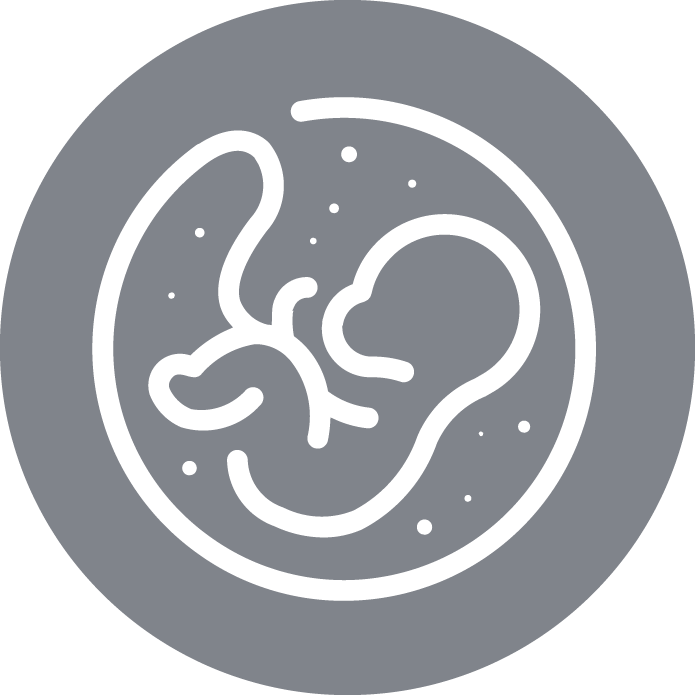Does diabetes pose a challenge in the pursuit of parenthood?
Every year since 2006, November 14 marks the date for raising awareness of Diabetes mellitus. It is a growing threat in our healthcare system; according to data from the International Diabetes Federation (IDF), 5.1 million adults in Spain suffer from this disease. In comparison to 2019 data, this number has increased by 42%. And in response to the question entitling this post, yes, diabetes directly affects reproductive capacity.
Diabetes is a chronic metabolic disorder caused by insulin deficiency. It is either absolute when the cause is autoimmune destruction of the pancreatic beta cells (type 1 diabetes) or relative when it is due to an insufficient production of or peripheral resistance to insulin (type 2 diabetes). With an increasing incidence of type 1 and 2 diabetes, Reproductive Medicine specialists must be prepared to face the potential challenges that the disease's exponential rise may pose to fertility and fecundity.
How does diabetes affect female fertility?
Although DM1 and DM2 have much in common, they impact differently on reproductive capacity. They are clinically distinct, but both types can have a significant effect on achieving gestation.
In the case of type 1 diabetic women, menstrual irregularities occur at a frequency of between 20- 40%. This percentage is even higher during adolescence. Menstrual disorders have repercussions that interfere with the occurrence of a spontaneous pregnancy. In addition, scientific literature indicates that these patients have a shorter reproductive period and an earlier onset of menopause. The fertile period suffers an average shortening of 2 to 3 years.
Type 2 diabetes accounts for most diabetes cases and is associated with poor lifestyle habits. It is possible to control excess glucose with medication. However, in addition to medication, changes such as a healthy diet and frequent exercise are necessary to properly control glucose levels. Strict management of metabolic and hormonal levels in any diabetic patient is especially important at the time of conception. This reduces the risk of miscarriage or of the newborn suffering from congenital diseases, premature birth, excess weight (fetal macrosomia) or hypoglycemia.
In women with diabetes, there is a high prevalence of polycystic ovary syndrome (PCOS). The even higher diagnosis in women with type 2 diabetes means that they often have to resort to assisted reproduction treatments in order to increase their chances of becoming mothers. As with PCOS, patients with type 2 diabetes are more frequently associated with obesity. As a result, even if they have achieved good metabolic control, their oocyte quality and endometrial receptivity parameters are usually suboptimal.
In the case of women with type 1 diabetes, their metabolic management is more complex. Once achieved, however, the results and success in fertility treatments is very similar to that of healthy women. The percentage of these women who present fertility problems is similar to that of the general population.
How does diabetes affect male fertility?
As in the case of women, poor control of the disease can also affect fertility in men. This does not significantly alter the classic parameters of the spermiogram. On the contrary, what has been discovered is that the sperm DNA shows a greater degree of fragmentation. This is probably due to an increase in surrounding free radicals resulting from hyperglycemia in poorly regulated patients or from an alteration in the repair mechanisms.
Nevertheless, genetic damage to the sperm's nuclear DNA affects fertilization and increases the risk of miscarriage.
The importance of single embryo transfer in diabetic patients
As with all other cases, multiple pregnancies should ideally be avoided, and a single embryo transfer is preferable to reduce the risk as much as possible. This specification is essential in diabetic patients. The scientific consensus to transfer a single embryo per cycle must be complied with, even if it means repeating and increasing the number of embryos. The fact that the patient undergoes repeated ovarian stimulation cycles is not a disadvantage in the sense that the hormones provided, such as FSH, do not have an impact on glycemic levels.
A multiple pregnancy poses a risk to both the mother's and the fetus' health. In addition to worsening perinatal outcomes, the patient's previous complications, such as diabetic retinopathy, may be aggravated.
If you are interested in learning more about available treatments for women with this or other conditions and syndromes such as endometriosis, we recommend that you enroll in our online infertility course.



